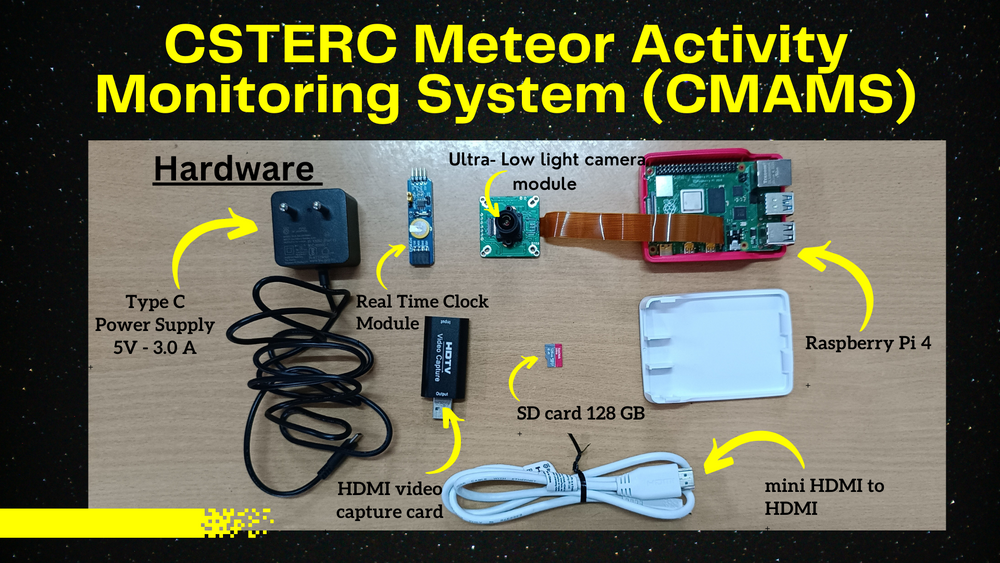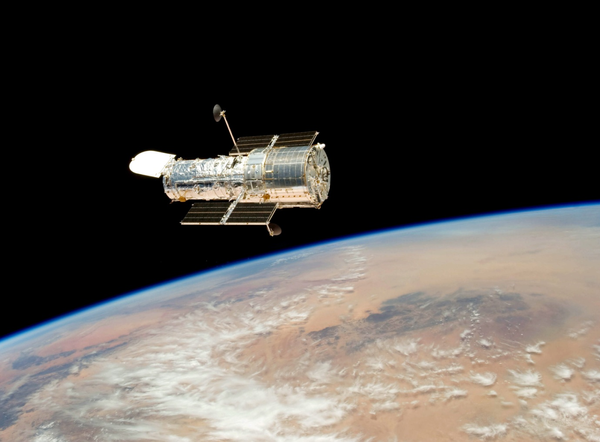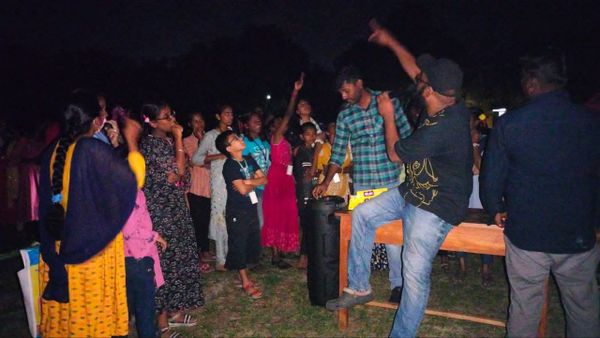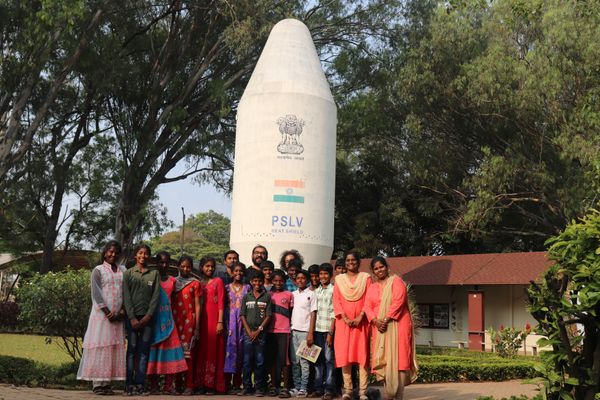Our Collective Experience at the 3rd MetMeSS Symposium - Physics Research Laboratory, Ahmedabad
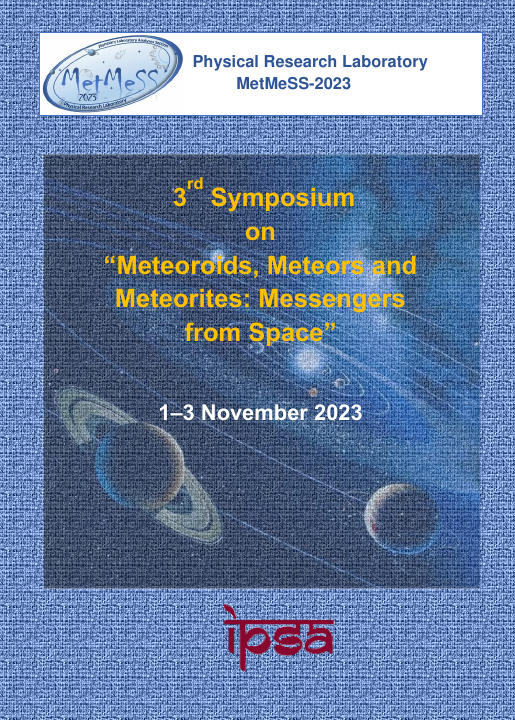
Introduction:
The cosmos has always been a source of fascination, inviting us to explore its vastness and unravel the secrets it holds. Recently, we, as representatives of the Open Space Foundation, an NGO dedicated to promoting science education and exploration, had the privilege of attending the 3rd Meteoroids, Meteors, and Meteorites Symposium (MetMeSS) at the prestigious Physical Research Laboratory in Ahmedabad. Organized as an in-person event, the symposium brought together brilliant minds from around the world to share their groundbreaking research on the formation and evolution of our solar system.
Symposium Overview:
The MetMeSS symposium serves as a platform for prominent researchers to present their latest findings, pushing the boundaries of our comprehension of the solar system's intricate processes. Held in person, the event fosters meaningful interactions and collaborations among scientists, fostering an environment of intellectual exchange and innovation.
Our Presentation: CSTERC Meteor Activity Monitoring System. The heart of our presentation was the CSTERC Meteor Activity Monitoring System, a project meticulously crafted by the Center for Science and Technology Education, Research, and Communication (CSTERC). The system, featuring a Raspberry Pi-built 720px low-light camera with an f/1.0 8mm focal length, showcased our commitment to leveraging cutting-edge technology for scientific exploration.
The Project Details:
This project, led by CSTERC, focuses on establishing a network of traditional video surveillance systems operated by professionals, such as the Camera for Allsky Surveillance cameras (CAMS). The primary objective is to validate the International Astronomical Union (IAU) working list of Meteor Showers. By utilizing data from these camera networks, researchers can catalog meteor showers, differentiate minor meteor showers, and contribute to refining the IAU working list.
The CSTERC Meteor Activity Monitoring System is an amateur effort designed to capture meteor activities. Utilizing Raspberry Pi-connected, f/1.0 8mm focal length 720px low-light cameras, the system employs FreeTure, a free software to capture meteors, to record the data. This research effort enables a comprehensive understanding of meteor showers, facilitating data sharing among connected researchers to produce scientific results.
Pilot System in Coimbatore:
In the first phase of this ambitious project, CSTERC built a pilot system in Coimbatore, Tamilnadu, India. This initial setup served to evaluate the functional attributes of the monitoring network and laid the foundation for scaling the project to a broader scope.
The Reception:
The symposium provided a unique opportunity for us to engage with fellow researchers, scientists, and enthusiasts passionate about unraveling the mysteries of the cosmos. Our presentation received positive feedback, with attendees expressing interest in the practical applications of our monitoring system and the innovative use of Raspberry Pi technology.
Collaborations and Future Endeavors:
One of the most rewarding aspects of the symposium was the potential for collaboration. Networking with researchers from diverse backgrounds opened doors to future partnerships and joint projects. The Open Space Foundation looks forward to further collaborations that will propel our mission of promoting science education and exploration.
Conclusion:
The 3rd MetMeSS Symposium was an enriching experience, offering a glimpse into the forefront of solar system research. Our contribution, the CSTERC Meteor Activity Monitoring System, was well-received, reinforcing the importance of accessible technology in advancing our understanding of celestial phenomena. As we return from Ahmedabad, the Open Space Foundation remains inspired and motivated to continue our journey of exploration, pushing the boundaries of scientific knowledge and fostering a deeper connection with the cosmos.
Acknowledgments:
We extend our heartfelt gratitude to the esteemed individuals who played pivotal roles in the success of the 3rd MetMeSS Symposium, ensuring an enriching experience for all participants.
Dr. Anil Bhardwaj, FNA, FASc, FNASc, J.C. Bose Fellow: As the Academician of the International Academy of Astronautics and the Director of PRL, Dr. Anil Bhardwaj's visionary leadership and invaluable insights contributed significantly to the symposium's success. We express our sincere appreciation for his unwavering commitment to advancing the frontiers of space research.
Ramakant R. Mahajan, Co-Convener: We extend our gratitude to Mr. Ramakant R. Mahajan, Co-Convener of the symposium, for his dedicated efforts in orchestrating this intellectually stimulating event. His organizational skills and commitment to fostering a collaborative environment were instrumental in creating a memorable experience for all participants.
Dipak K. Panda, PLAS Section Head: A special thanks to Mr. Dipak K. Panda, the Section Head of PLAS, for his contributions to the symposium's success. His expertise and guidance significantly enriched the discussions and presentations, enhancing the overall quality of the event.
Kuljeet K. Marhas: Our appreciation extends to Mr. Kuljeet K. Marhas for his role in making the symposium a resounding success. As a contributor to the event's coordination, Mr. Marhas played a crucial part in ensuring the smooth execution of various activities.
In conclusion, we express our sincere gratitude to Dr. Anil Bhardwaj, Mr. Ramakant R. Mahajan, Mr. Dipak K. Panda, and Mr. Kuljeet K. Marhas for their unwavering dedication and leadership, which contributed to the success of the 3rd MetMeSS Symposium. Their commitment to advancing scientific knowledge and fostering collaboration has left an indelible mark on our collective experience.

